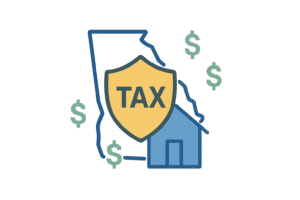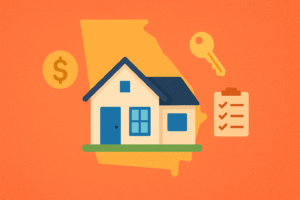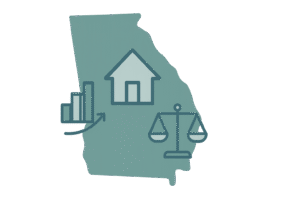Home Inspection Tips: Finding the Right Inspector
After more than two decades as a Georgia real estate closing attorney, I’ve seen how these home inspection tips can save buyers from a financial…
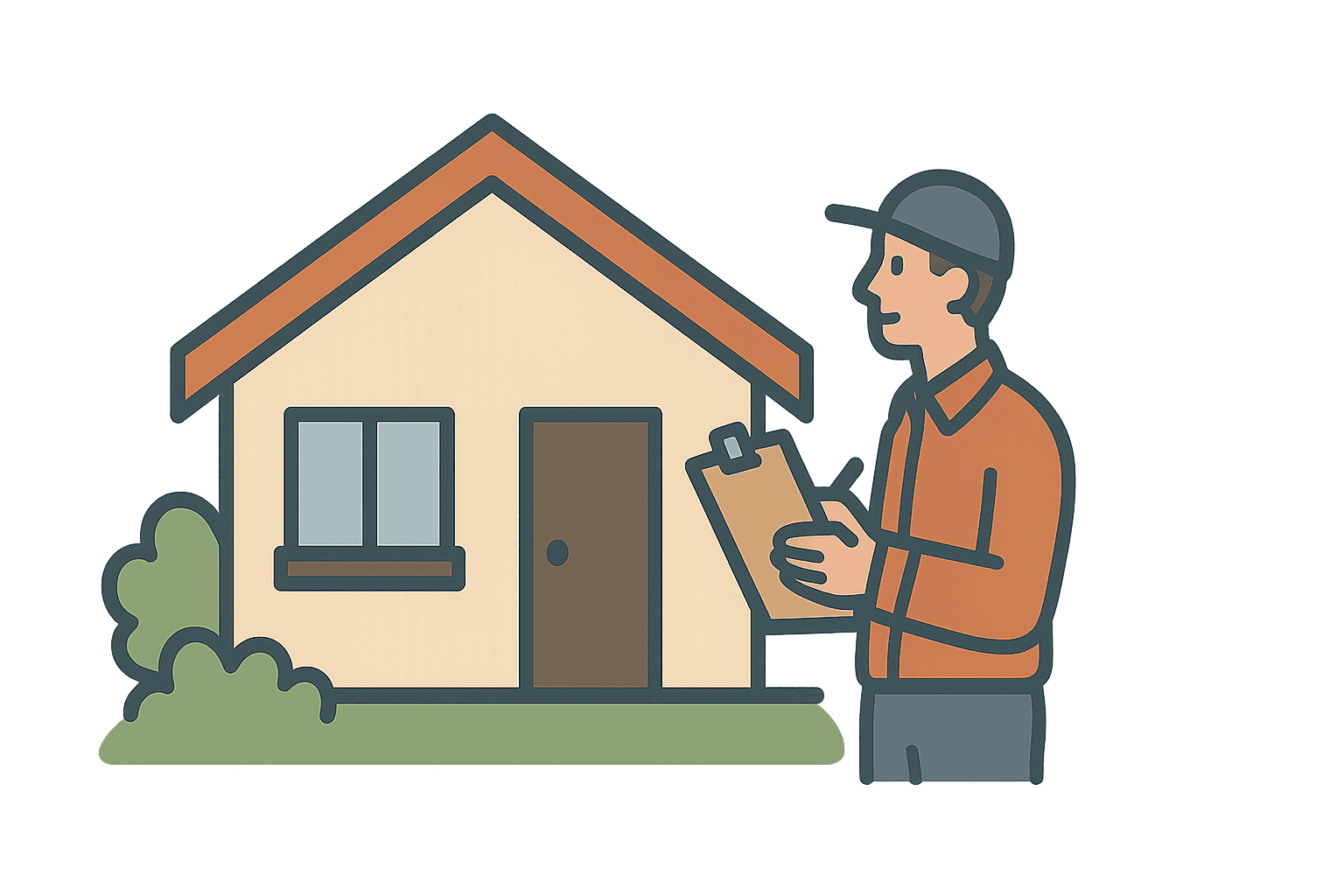
After more than two decades as a Georgia real estate closing attorney, I’ve seen how these home inspection tips can save buyers from a financial nightmare by choosing a thorough home inspection. I’ve also seen deals fail because buyers skipped this important step or chose an unqualified inspector. The home inspection process can feel overwhelming, but finding the right professional is one of the most important decisions you’ll make when buying a home.
Why a Professional Home Inspection Is a Must-Have
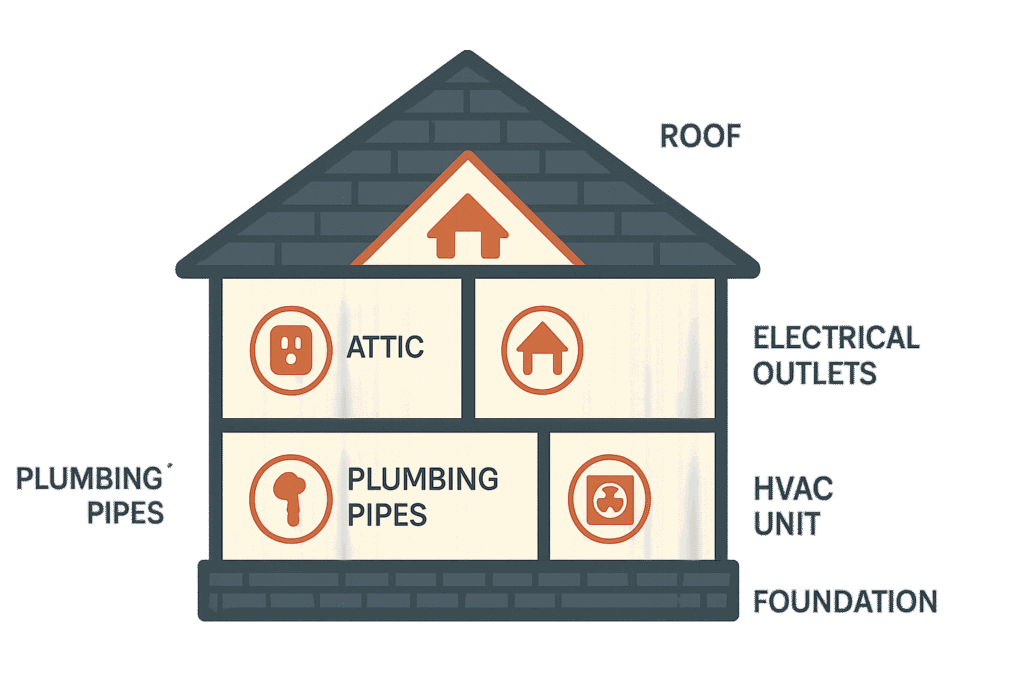
A comprehensive home inspection is your first defense against costly surprises after closing. I’ve heard nightmare stories about cases where unqualified inspectors missed critical foundation issues, leading to post-closing repairs costing thousands of dollars.
A qualified home inspector examines every accessible part of a house. They check electrical systems, plumbing, the HVAC system, the water heater, and structural components. This thorough check helps find potential problems before they become your responsibility.
The inspection covers areas most buyers never think to examine. Your inspector will crawl through the crawl space, climb into the attic, and test electrical outlets. They’ll look for signs of water damage, check the roof’s condition, and make sure safety systems like smoke detectors are working.
The Home Inspection Contingency
The home inspection contingency in your purchase agreement provides legal protection and negotiating power. This clause allows you to back out of the deal or ask for repairs if the inspection reveals major problems. Without this, you’re buying the property “as-is” with no way to fix problems you find later.
Most purchase agreements include a specific time frame for the inspection, usually 7-14 days after the contract is accepted. During this time, you have the right to hire a professional inspector and review their detailed report. If major issues are found, you have several options.
You can ask the seller to make repairs, request a credit toward closing costs, or negotiate a lower price. In serious cases where structural or safety issues are discovered, you can cancel the contract completely.
The Value of Peace of Mind
Beyond finding potential issues, a professional home inspection provides valuable peace of mind. Knowing your future home has been thoroughly checked by a qualified expert allows you to move forward with confidence. The inspection also serves as an educational opportunity.
A good inspector will explain how various systems work and point out maintenance tasks you’ll need to do. This knowledge helps you budget for future expenses and understand your home’s unique characteristics. For many of my clients, the inspection report became their first homeowner’s manual, which they referenced months or even years later.
Your Guide to Vetting Potential Inspectors
Finding a qualified home inspector requires careful research. The inspector you choose will have access to your potential new home for several hours and will provide information that influences your largest financial investment. Start your search early in the home-buying process.
Once you have an accepted offer, you’ll have limited time to schedule and complete the inspection. Having a list of pre-vetted inspectors ready saves time and reduces stress. Quality inspectors often book up quickly, so an early start means you have better options.
Asking Your Real Estate Agent for Recommendations
Your real estate agent works with home inspectors regularly and can give valuable recommendations based on their professional experience. Agents know which inspectors are thorough, reliable, and provide clear reports.
However, remember that your agent’s recommendations might be influenced by inspectors who help deals move smoothly. While this is not always bad, you want an inspector who will identify all potential problems, not just the ones that will not stop the sale. Ask your agent for at least three recommendations and ask about each inspector’s strengths.
Some specialize in older homes, while others focus on new construction or specific systems like septic systems.
Finding an Independent Inspector
Independent research gives you options beyond your agent’s recommendations. Start with professional associations like the American Society of Home Inspectors (ASHI) or the International Association of Certified Home Inspectors (InterNACHI). These organizations have member directories and uphold professional standards.
Online reviews and local business directories provide insight into other customers’ experiences. Look for patterns in reviews instead of focusing on single complaints. A few negative reviews among many positive ones is normal, but consistent complaints about thoroughness are red flags.
Word-of-mouth recommendations from friends or family who have recently bought homes can also be very helpful.
What to Look for in an Inspector’s Credentials
A qualified inspector should have the right insurance, including general liability and errors and omissions coverage. This protects you if the inspector misses significant issues or damages something during the inspection. Look for inspectors who invest in continuing education and stay current with building codes and inspection techniques.
Experience matters, but it’s not just about years in business. An inspector who has performed thousands of inspections on a variety of homes brings valuable knowledge to your inspection.
Key Certifications and Associations
| Certification/Association | Description | Requirements |
|---|---|---|
| ASHI | Gold standard for credentials. | Extensive training, rigorous exams, experience, strict code of ethics. |
| InterNACHI | Reputable with high standards. | Comprehensive exams, ongoing education, technical skill focus. |
| State Licensing | Baseline competency, varies by state. | Minimum education/experience; check the board for complaints. |
In Georgia, home inspectors are not required to be licensed by the state. Instead, rely on reputable certifications from organizations like ASHI or InterNACHI to ensure professional standards.
When to Consider a Structural Engineer
For certain homes or specific concerns, you might need a structural engineer in addition to your home inspector. Older homes, properties with known foundation issues, or houses with unusual construction may need this specialized expertise.
A structural engineer can evaluate load-bearing walls and foundation integrity beyond a typical inspector’s scope. Their detailed reports can identify problems and recommend solutions. I’ve seen cases where a structural engineer’s report saved buyers tens of thousands of dollars by finding problems a general inspector couldn’t fully evaluate.
Critical Questions to Ask Your Potential Inspector
| Category | Question | Explanation |
|---|---|---|
| Experience and Specialization | How many home inspections do you perform each year? | 200-300 annually indicates experience without being overbooked or rushed. |
| Experience and Specialization | Do you have experience with older homes or new home construction? | Relevant to home’s age/type. |
| Inspection Coverage | Will you inspect the HVAC system, water heater, and electrical systems? | Includes all major systems, components, ductwork. |
| Inspection Coverage | What about the plumbing, septic systems, and crawl space? | Checks pressure, leaks, fixtures, moisture, pests. |
| Inspection Coverage | Do you look for signs of water damage, major issues, or safety issues? | Prioritizes mold risks, hazards like electrical dangers. |
| The Inspection Report and Follow-Up | What does your detailed report look like? | Comprehensive, with photos/descriptions; request sample. |
| The Inspection Report and Follow-Up | Do you provide advisory services after the inspection? | Offers post-report guidance. |
The Home Inspection Process: From Start to Finish
Preparing for Inspection Day
Prepare for inspection day by coordinating with the seller to ensure all utilities are on and the property is accessible. The inspector needs electricity, water, and gas to test all systems. Clear any personal items that might block access to important areas like the electrical panel or water heater.
Confirm the appointment details, including the start time and expected duration.
Attending the Inspection
Attending the inspection provides a valuable learning opportunity and allows you to ask questions. Pay close attention when the inspector examines major systems. Take notes and photos of areas they highlight.
Reserve detailed questions for the end of the inspection to avoid interrupting their work. Ask about the significance of issues and potential costs for addressing them.
What to Expect in the Report

Your report will differentiate between major and minor issues. Major issues include safety concerns, structural problems, or expensive system failures. Safety issues like faulty wiring should be addressed before you move in.
Minor issues are cosmetic or routine maintenance items that do not affect the home’s safety. They should be noted but do not typically warrant renegotiating the purchase agreement.
Addressing Necessary Repairs and Next Steps
Once you receive the report, review it with your real estate agent to create a response strategy. Focus on significant problems that affect safety or require a substantial financial burden. Consider the age and overall condition of the home when evaluating the findings. Prioritize repairs that could worsen over time, such as roof leaks or foundation issues.
Using the Report to Negotiate
The inspection report gives you leverage to renegotiate the purchase agreement. You can request the seller make specific repairs, provide credits, or reduce the price. Focus your negotiation on major findings.
Work with your agent to develop a reasonable strategy based on the local real estate market.
Addressing Red Flags
Structural issues and safety concerns require immediate attention. Foundation problems or compromised load-bearing walls can affect the home’s safety and value. Safety concerns like exposed wiring should be resolved before closing.
Older electrical panels or HVAC units nearing the end of their life also represent significant future costs. Obtain multiple contractor estimates to understand the true cost of repairs you will address after closing.
Why a Thorough Inspection is the Best Investment
Saving Money in the Long Run
A comprehensive home inspection typically costs between $300 and $500 on average, varying by location and size, but it can save you thousands of dollars. Early problem identification allows you to negotiate repairs or credits with the seller instead of paying for hidden defects after you close.
The inspection report serves as a roadmap for prioritizing projects and planning expenses.
Protecting Your Family
Beyond finances, a thorough inspection protects your family’s safety. Identifying hazards like faulty wiring or structural problems can prevent accidents. Environmental concerns like radon or mold can also be found so you can address them before they impact your family’s health.
Final Thoughts for Prospective Buyers
Knowledge is power in real estate transactions. A quality inspection gives you the information you need to make confident decisions about one of the biggest purchases of your life. Do not see the inspection as a hurdle; see it as an investment in your future.
The few hundred dollars you spend can save you thousands down the road and give you invaluable peace of mind. Remember that no home is perfect. The goal is not to find a flawless property, but to understand what you are buying and ensure you are prepared for the responsibilities of homeownership.
A good inspector does not just find problems; they educate you about your future home. Choose your inspector carefully, attend the inspection, and use the information wisely. Your future self will thank you for taking this important step seriously.
